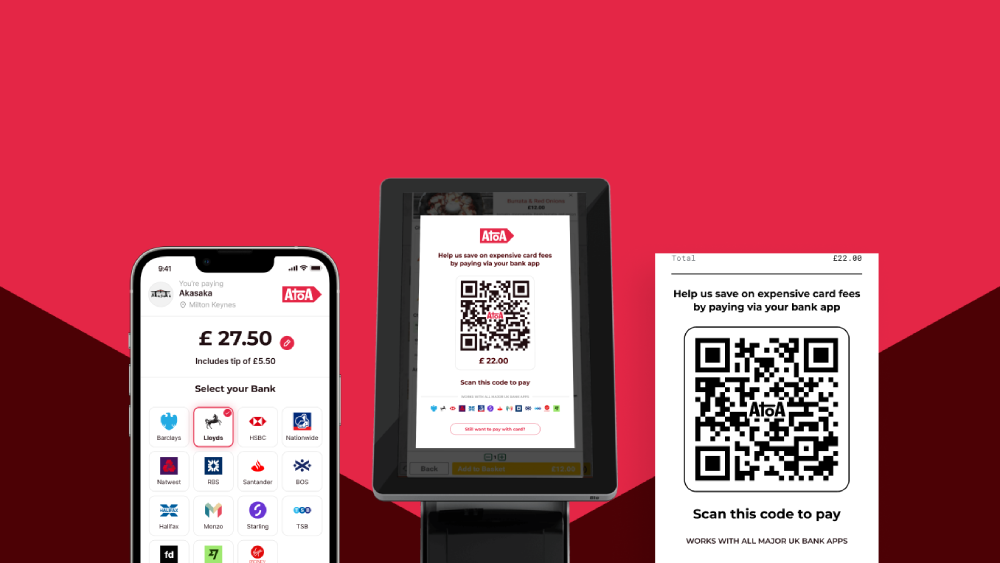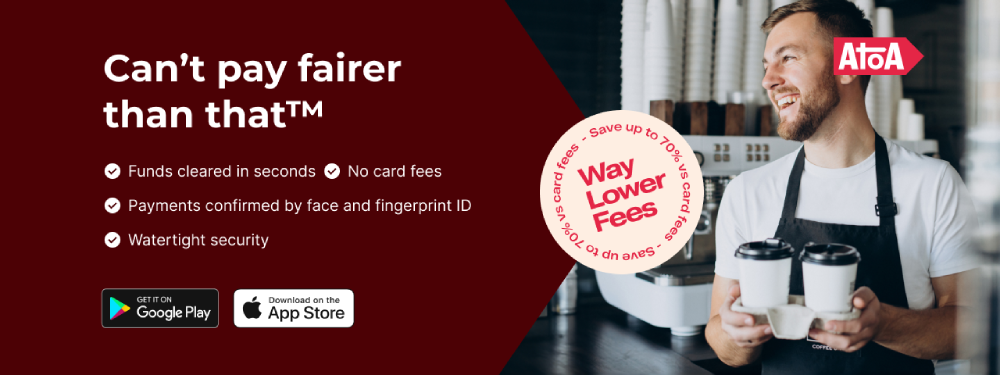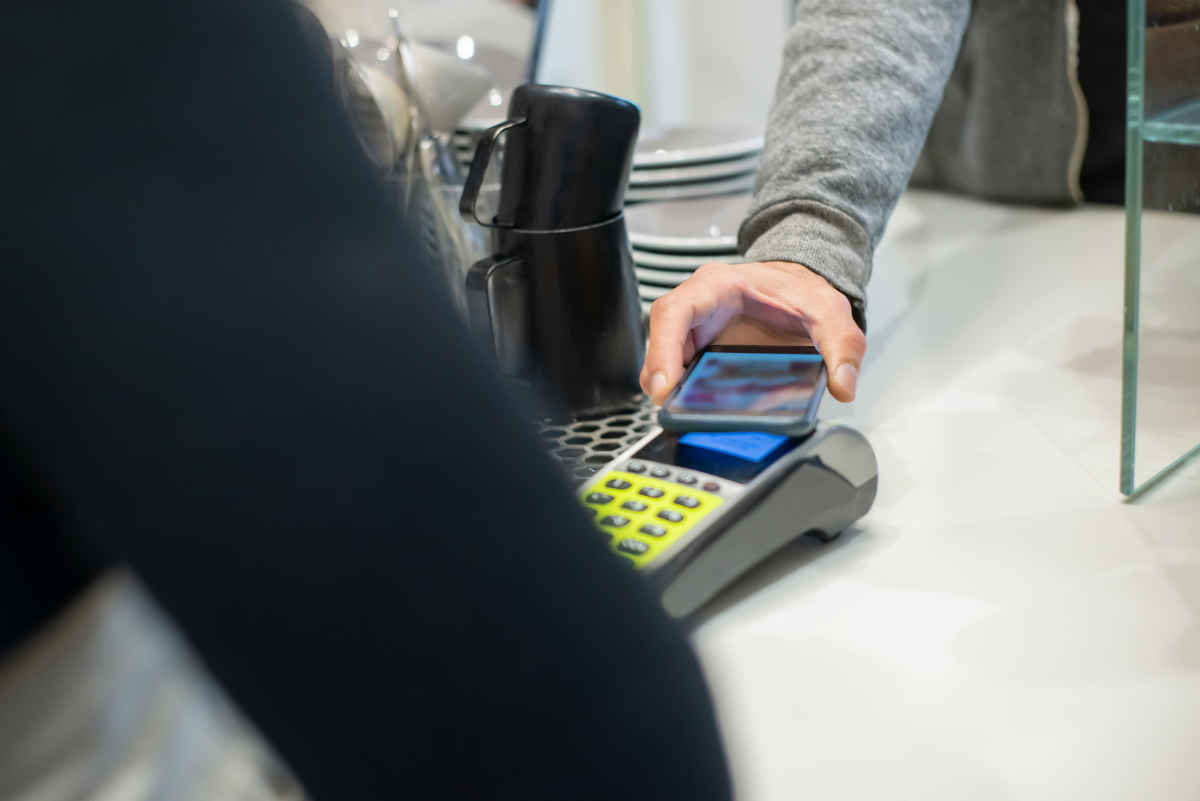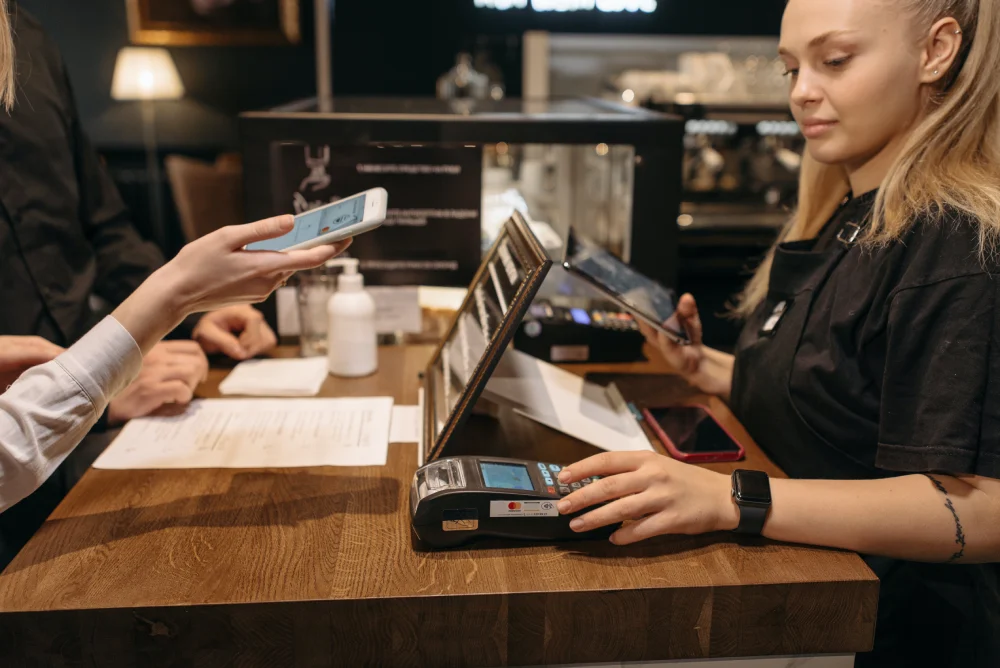Ready to get started?
Easily integrate next-generation payments and financial data into any app. Build powerful products your customers love.
Prepayments are when you pay for something before you get it. In business, a customer pays you upfront for goods or services they will receive later. This could be a deposit for a large order, a subscription fee, or even block bookings. Customers may also prepay in stores if they order something custom-made (like bespoke furniture) or if an item isn’t in stock.
When used correctly, prepayments and deposits can be a budgeting superpower for your business. They give you more control over expenses and help keep your cash flow steady instead of a downpour.
Why do prepayments matter?
Getting yourself a takeaway? Well, you often pay for your chow mein now and pick it up when it’s ready. Prepayments work the same way – you pay beforehand for things your business needs – from rent and insurance to software subscriptions, stock or supplies.
The same goes for taking payments from your customers. A few incentives and discounts can encourage upfront payments. This is also a good tactic for securing beauty appointments and using deposits for table reservations to reduce no-shows.
Prepayment or advance payment?
They’re essentially the same. It’s like saying “football” or “footy” – they both refer to the same thing.
Prepayments and deposits offer extra financial protection for your small business or startup needs. They show up as an asset on your balance sheet, making your business look healthier. And as you use up the stuff you’ve paid for, the expense gradually appears on your income statement.
How prepayments could work for your business
Are expenses swallowing you up? Instead of one big bill hitting all at once, you can spread the cost out over time. This helps your cash flow and budgeting.
If you need to secure an office space or a supplier with creme-de-la-creme stock, a prepayment can seal the deal, especially if things are in high demand. You could also bag yourself a cheeky discount. Prepayments give suppliers a cash flow boost and predictable business, so they might offer a price break to thank you.
The benefits of using prepayments
Do you want improved cash flow and budgeting? Advance payments could be your road to success, offering predictable income for your goods or services. Prepayments mean you get paid upfront, which boosts cash flow to cover daily operations, stock and supplies, or investing back into the business. Also, spread out your expenses by paying for such as annual insurance, subscriptions, or rent over time.
Predictable cash flow can also help forecast income, which makes long-term financial planning easier. You might reduce the risk of missed payments when customers are committed to paying in advance. Plus, there’s no need to chase invoices…

Advance payments may also help to guarantee sought-after products, supplies, or spaces (like renting an outdoor market stall in summer). This is especially handy during high-demand periods. Furthermore, prepayments can help you negotiate better deals with suppliers for potential bulk discounts or better terms. Why not attract more customers with exclusive prepayment discounts, subscriptions or packages? Perks may encourage clients to pay upfront, which is especially useful for services or seasonal businesses relying on their busy periods.
Things to consider with prepayments
Upfront payments offer many advantages but consider issues that might arise for your business or customers. There’s nothing too crazy, but you will need a policy and plan in place here.
- Clients need to feel confident that you’ll deliver what they’ve paid for. Consider asking for a percentage upfront and then taking the remaining payment on delivery to build trust.
- Customers might cancel, so have clear policies to manage refunds or adjustments if plans change. Make sure your terms and conditions cover no-show appointments.
- Keep accounting records and track prepayments to avoid complications during tax season.
Advantages beyond cash flow
- Deposits significantly reduce the risk of non-payment and help protect your business from loss. By paying in advance, your business can also avoid late payment fees with suppliers.
- Knowing a portion of income is already secured may allow for better budgeting and planning.
- Clients who make prepayments are often more committed and want your business to succeed.
Potential challenges with advance payments
Some customers may feel uneasy about prepayments, especially large ones. Be prepared to address concerns and explain the benefits. Whilst having a clear refund policy is essential, managing refunds can still take time and effort. But we do have an easy solution for that…
There are legal considerations to consider. Some industries may have regulations regarding deposits or prepayments, so do your research. Be aware of laws around consumer protection, especially regarding refunds and cancellations. Prepayments can also complicate accounting. Keep clear records of deposits as unearned revenue until the work or booking is completed. If you’re unsure, consider speaking to an accountant
Tips for successful prepayments
Imagine you’re an in-demand bakery with a big reputation. A customer wants a cake for a party but keeps changing their mind. If you don’t have a clear commitment, you could waste time and ingredients.
Asking for prepayment is like having the customer “put their money where their mouth is.” It helps you avoid baking a cake that doesn’t get collected, costing you time, ingredients, and money.
- Clear communication is essential as this helps customers feel comfortable with paying upfront. If you’ve got glowing online reviews, then you could share them to build trust.
- Consider offering small discounts for prepayment, especially when they’re from first-time clients.
- Carefully record your advance payments and contracts to avoid disputes.
💡Remember to weigh the benefits and challenges carefully, as taking prepayments might not suit your business model.
How to use advance payments in your business
- Hair and beauty businesses could offer clients block booking options for treatments (e.g., a package of 10 facials) at a reduced rate.
- What about hospitality? Deposits and advance payments are used far and wide, from everyday dinner reservations to fully blown weddings or corporate functions. It’s the same for hotels and travel, with pre-bookable accommodation packages that include a hotel stay, meals, and activities.
- Run a garage? Then get hold of essential parts by prepaying suppliers for bulk orders, potentially securing better prices. Invest in equipment and tools with a prepayment and spread the cost into instalments.
- Auto dealership? Let customers secure their dream car with a deposit, which is refundable if the deal doesn’t go through. Stretch purchases with prepaid maintenance and service plans (such as a year’s worth of oil changes and inspections) for predictable and steady income.
Remember to weigh the benefits of prepayments up against any potential business risks. Think about your suppliers’ reliability or the likelihood of client cancellations.
A set-by-step guide to taking prepayments
Set a clear policy
- Set deposit or prepayment percentages that make sense for your industry (e.g., 50% upfront, remaining balance on completion).
- Outline terms and conditions with a customer-facing document that shows when prepayments are due and your refund policy.
Put transparency first
- Explain why. Make sure customers understand the purpose and benefits of prepayments. This might be securing a reservation or covering material or stock costs upfront.
- Discuss prepayments at the start of conversations, or make sure it’s clear during your online booking process.
Document everything
- If you’re dealing with high-value transactions, use clear contracts that outline goods or services, amounts, deadlines, and refunds.
- Both parties should sign to seal the deal.
- Always send customers an invoice showing the amount, payment methods accepted, and your due dates.
Offer flexible payment options
- Accept cash, cards and other payment platforms that match your business structure.
- Consider offering payment plans for larger deposits, but only if it makes sense for your business model or payment methods.
Above all, be professional
- Be confident, not apologetic.
- Stay firm but friendly when requesting prepayment and explain its standard practice in your business.
- Show gratitude for the client’s business and understanding of your policy.
💡If you’re new to prepayments, start with smaller deposits and then slowly increase them if required. Make exceptions for trusted clients and allow flexibility for trusted clients or small payments.
FAQs
What is a prepayment?
A prepayment occurs when a customer pays you upfront for goods or services they will get later. This could be a deposit for a large order, an annual subscription fee or pass, or a retainer for ongoing consulting work.
Are there any advantages to accepting prepayments?
Prepayments offer several benefits, including better cash flow, which gives your business access to funds earlier. They also show customer commitment, which reduces the risk of non-payment. Additionally, upfront payments can help you plan stock and resources.
When should I use prepayments?
Prepayments can be used in many ways and situations. They’re a good idea for large or custom orders, where upfront costs for materials are high. Consider them for new clients or those with a history of late payments. Prepayments are also common for subscription-based services or block bookings in salons or gyms.
How do I log prepayments in my books?
Prepayments are recorded as liabilities on your balance sheet. This is because you owe the customer goods or services in exchange for the money they’ve provided. Once you deliver the goods or services, the liability becomes income. Speaking to a professional can confirm your system follows UK payment regulations.
What happens if a customer cancels after making a prepayment?
Your prepayment policy needs to outline how you handle cancellations. Depending on the circumstances, you might offer a full or partial refund. For instance, if a customer cancels well in advance, you might retain a small processing fee. However, if they cancel close to the delivery date, you could keep a larger portion of the prepayment to cover any costs.
How Atoa can help
Are you ready to start taking prepayments or deposits? Head to our website to learn how our instant, low-fee transactions can help you. Customers pay directly from their bank app with a tap or scan, which means no card details over the phone. It’s like magic!




